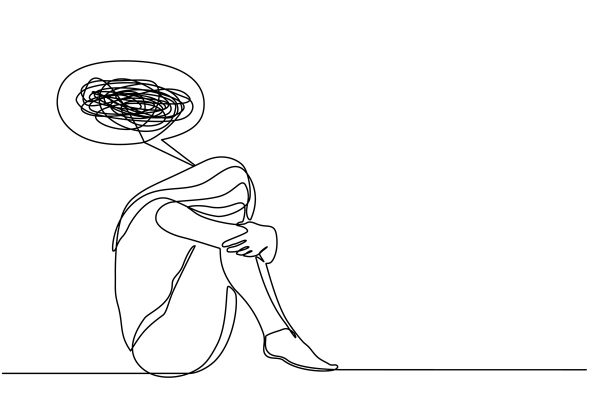Put yourself first for once, your health may depend on it
Studies show stress and lack of sleep in millennials factors into weight
More stories from Meghan Hosely
When I first stepped foot on campus as a student more than two years ago, I knew I couldn’t begin to think up all the fun adventures I’d have in my time here.
However, I failed to account for the amount of stress I would encounter here as well. Since we’re just getting into the thick of classes, and all our tests and projects are starting to pile up, I feel like “stressed out” is a perfectly acceptable response to give whenever someone asks how I’m doing.
I know I’m not the only one. In day-to-day conversations with my friends, I don’t think I know anyone who doesn’t have a list of (seemingly) 500 things to do in one week.
I used to think the only way to deal with the stress of my classwork was to just push through it and hope for the best. If I had to stay up well after midnight to cram for an exam, I’d sleep more maybe in a few days, when I didn’t have as much to do.
CNN released findings to a study, stating that millennials have, on average, a higher body mass index than someone our same age in the late 1980s. Body mass index is the relationship between a person’s height and weight, and anything between 18.5 and 24.9 is normal.
Essentially, we weigh more than the average college student did in the late 1980s.
The study said there are more aspects than just diet and exercise that affect our weight. Stress and sleep levels also play a key role.
According to Mayo Clinic, stressful times lead to stress-eating, usually high-caloric foods. We eat “in attempt to fulfill emotional needs.”
In general, people who sleep less are more susceptible to weight gain than people who get the necessary hours of shut-eye each night. Ghrelin, a hormone in the body, is released when your body doesn’t get enough sleep, which is also linked to increased appetite.
Although it may seem like a hopeless pursuit to take time for yourself each and every day, it is possible. I’ve found multiple ways to destress each day and to get more sleep than I thought I could.
How I take time to distress:
– Find a show to watch on Netflix. “How I Met Your Mother,” for example, is 22 minutes long, which is the perfect amount of time to sit and relax between classes and starting homework.
– Go on a walk. Hello: we have Putnam Trail for a reason. Take advantage of the fall colors peaking out and appreciate nature on campus.
– Talk to a friend. Personally, it helps me a lot when I have a pal to talk about my problems with. It helps me feel like I’m not alone in the piles of homework I have to do.
How I find time to sleep:
– Twenty minute naps are my best friend. Really. If you have time between class, or a few extra minutes you can spare before starting homework, try a power nap. The times vary for people, but I always wake up refreshed and ready to tackle whatever’s on my to-do list.
– Go to sleep at night. Your brain processes information when you sleep, and throws out unnecessary information. If you’re stuck between going to sleep and studying for another 30 minutes, it might be wise to prioritize getting shut-eye.
– Mayo Clinic’s sleep tips include creating a bedtime ritual. Is there a book you’ve been trying to read for awhile, but haven’t gotten around to doing so? Read for a few minutes before bed. By doing the same thing each night, it lets your body know it’s time to wind down and head off into slumberland.
– Work out regularly. Mayo Clinic’s tips also said if you have a workout regime that you stick to, it helps your body fall asleep faster and puts you in a deeper state of sleep.
Next time you’re feeling stressed out, try some of the suggestions I just listed. Multiple aspects of your health may depend on it.









